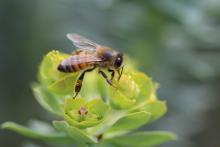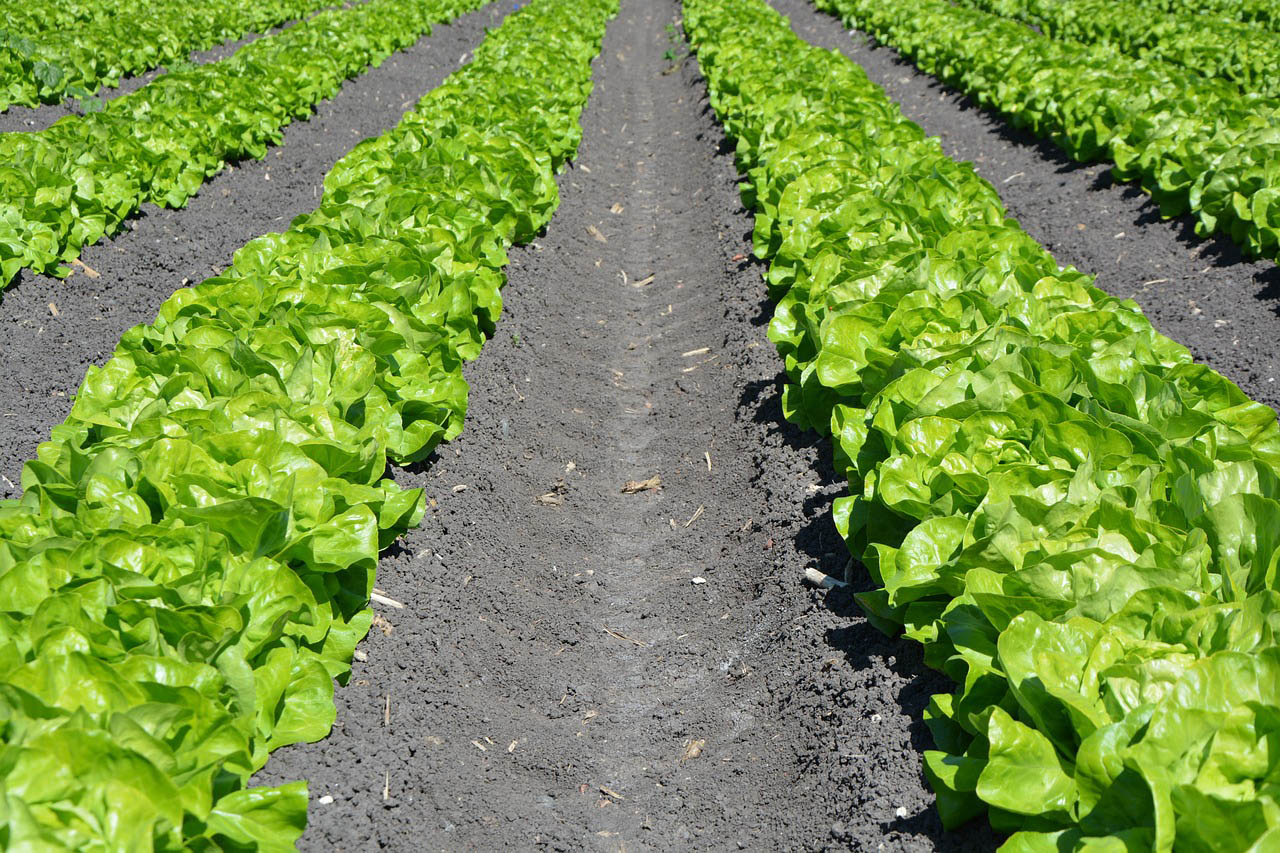
General Public - PSS Questions
What does the Plant Services Section do?
The Plant Services Section oversees a number of statutes and rules for the protection of plant health in the state. The Plant Services Section safeguards agriculture, food and the environment from the risks associated with the entry, establishment and spread of plant pests, diseases and noxious weeds thereby promoting agricultural sustainability, market access and competitiveness.
What laws and rules govern the Plant Services Section?
The Plant Services Section enforces a number of Statutes and Rules for the protection of plant health in the state. We operate strictly from direction and mandates provided by elected officials through our regulations in Title 3 of the Arizona Revised Statutes (see current statutes). We enforce the regulations in statute through Title 3, Chapter 4 of the Arizona Administrative Code (see current rules). In cases where immediate action needs to be implemented to mitigate the risk of a pest or protect an agricultural commodity a Director’s Administrative Order can be issued.
Can I bring my plants to Arizona from another state?
If you are moving to Arizona you may bring your indoor house plants, that are free of insects and in a commercially prepared potting mix, without a certificate from the state ot origin.
All other plants must be accompanied by a Certificate issued by the origin state that attests that the plants are generally free of pests and meet any quarantine entry requirements.
Plants that originate from areas under quarantine for imported fire ants or harmful nematode pests must be received by a nursery, business, or individual that has a valid "Quarantine Holding Area" so that plant material can be inspected if necessary. For a list of locations that have approved holding areas "Click Here".
For more information, call Jamie Legg at (602) 542-0992.
Can I move my Arizona plants to another state?
Depending on the plant and destination there may be certain treatment and certification requirements, or the plant might be prohibited. It is best to check with the state you are moving to for that answer. You can also find the individual state regulations on the National Plant Board’s website(link is external).
For more information you may call Jamie Legg 602-542-0992 or email: [email protected]
What current issues are affecting agriculture in Arizona?
The best resource for finding out what current events are affecting the agricultural industry in Arizona is through the Arizona Farm Bureau's website.
I have an infestation of termites. Who can I call to take care of them?
The Plant Services Section does not handle the termites or other non-agricultural pests. The Pest Management Division has more information on termites.
I have a swarm of bees. Who can I call to take care of them?
If anyone is being stung, call 911. If there is not a swarm of bees but only a few bees foraging on flowers, this is a natural thing and you should not be concerned. Foraging bees are not defensive and generally do not sting unless provoked (squished, swatted at, etc.).
Otherwise, check the list of licensed pest control companies or look for Beekeepers or Bee Removal Services on the internet or in a phone book. Swarming bees or beehives should only be handled by a professional pest exterminator or beekeeper. The Department does not make recommendations for any company. The Arizona Department of Agriculture does not handle any bee-related issues.For more information on bee extermination or control, contact a local pest exterminator or your local county cooperative extension office.For news media or researchers, call the Carl Hayden Bee Research Laboratory in Tucson, (520)670-6380.
I have a question about removing cactus from my yard, who can I contact?
Refer to the Native Plant section for more information.
I am traveling to Arizona. Can I bring firewood from my state?
Firewood from nut-bearing trees (pecan, walnut, hickory, butternut), emerald ash borer infested areas, or federally regulated areas for other pests that may infest firewood (such as imported fire ant and and gypsy moth) is prohibited from entering the state without proper treatment and certification. In general it is not a good idea to move firewood from state to state as it is a major pathway of wood boring and other pests. For more information visit: Don't Move Fire Wood
General Public - Nursery Stock
What is considered nursery stock?
A: "Nursery stock" includes all trees, shrubs, vines, cacti, agaves, succulents, herbaceous plants whether annuals, biennials or perennials, bulbs, corms, rhizomes, roots, decorative plant material, flowers, fruit pits or seeds, cuttings, buds, grafts, scions and other plants intended for sale, gift or propagation, either cultivated or collected in the wild, except seeds intended for propagation.
I found a suspicious looking bug on my plants that I have never seen before, who can I call to come look at it?
A: The Arizona Department of Agriculture deals with regulatory issues when it comes to dangerous and invasive plant pests. If you’ve found a bug or are seeing symptoms of a disease that you are concerned about it is best to start with your local plant nursery. They are familiar with a number of pests and diseases that are common to the area and can also provide solutions to handle an issue. The Arizona Nursery Association has listing of registered nurseries in Arizona. You can also call your local master gardener at one of the Arizona Cooperative Extension Offices.
Can I purchase nursery stock from another state online?
A: There are occasions that some selected varieties of nursery stock can be purchased online. It is best to ask the originating state if the online vendor is allowed to do so. If not, the shipment can be intercepted and destroyed at the consumer’s expense. There are cases where the vendor will state, “Cannot ship to Arizona.” That means they do not meet Arizona’s requirements.
I’m moving to Arizona, can I bring my houseplants?
When moving plants into Arizona, indoor house plants that are free of insects and in a commercially prepared potting mix are allowed into Arizona without a certificate from the state ot origin.
All other plants must be accompanied by a Certificate issued by the origin state that attests that the plants are generally free of pests and meet any quarantine entry requirements.
Plants that originate from areas under quarantine for imported fire ants or harmful nematode pests must be received by a nursery, business, or individual that has a valid "Quarantine Holding Area" so that plant material can be inspected if necessary. For a list of locations that have approved holding areas "Click Here".
For more information, call (602) 542-0992.
I’m moving to another state, can I take my plants with me?
It is best to check with the state you are moving to for that answer. You can also find the individual state regulations on the National Plant Board’s website.
Can I travel through Arizona with my houseplants?
Yes, but plants should be free of insects and diseases. Plants transported in a private vehicle will not be inspected. You do not need a certificate from your origin state department of agriculture to transit Arizona with houseplants.
For more information, call (602) 542-0992.
I bought a plant at a local nursery and it’s not doing so well. What can I do?
You should start by contacting the nursery where you purchased the plant, they may not want you to return an infested or infected plant. You can also contact your local extension office for advice on a number of plant health issues.
Cotton Questions
For more information, call the Arizona Cotton Research and Protection Council at (602) 438-0059.
Noxious Weed Questions
For more information, call (602) 542-0992.
General Public - Fruit and Vegetable Questions
Can I ship or take with me the citrus fruit off my tree to another state?
All citrus fruit that is moved out of the state has to be processed through a USDA approved packinghouse that disinfects for Sweet orange scab. For more information, see the USDA's Citrus Health Response Program information.
Can I ship or take with me my other fruits and vegetables to another state?
Some produce may be regulated by another state depending on the variety and the destination state. Check with the state you wish to ship or carry your produce to for requirements. Check the National Plant Board website or from the individual state department of agriculture website.
I am traveling to Arizona, can bring my fruit/vegetables from another state?
Small quantities of fruits and vegetables are not a major concern with passenger vehicles, although some may be regulated by the USDA depending on the variety and origin of the produce.
Commercial Trade and Business - PSS General Questions
I would like to certify my hay as noxious-weed free/I would like to obtain some noxious-weed free hay. Who can I contact to help me?
The Plant Services Division does not manage the “noxious weed free hay” program directly, but hay and straw can be certified as weed free or you can find vendors for weed free hay through the Arizona Crop Improvement Association, (520) 305-3586.
What do I need to transport hay into Arizona?
Hay coming into Arizona from areas that are under quarantine for the Red Imported Fire Ant (RIFA) must have been stored away from direct contact with the ground and must be accompanied by a permit from the USDA that states the hay is free from RIFA. If you have purchased hay from an area quarantined for RIFA and you find that your hay is infested with ants, please contact your local PSS office. All other hay is not regulated by ADA-PSS. There may be Federal requirements that hay is certified as "Weed Free".
How do I know if my agricultural goods need a phytosanitary certificate for domestic/international export?
For the most current information on what another state requires please contact the destination State Department of Agriculture or visit the NPB website. For international shipment requirements please contact the local PSS Office in your area.
I need a phytosanitary certificate for international export. Who do I contact?
Please contact your local PSS Office in your area to inquire about a phytosanitary certificate for international export. If you are familiar with the Phytosanitary Certificate Issuance & Tracking System (PCIT), you can log in here.
I need to export my agricultural goods to another state and they require a phytosanitary certificate/certificate of origin. Who do I contact?
You can contact your local PSS Office to request an application for a state phytosanitary certificate or a certificate of origin.
I found a suspicious looking pest on my product that I have never seen before, who can I contact to come look at it?
If you or someone in your company has found a pest or are seeing symptoms of a disease that you are concerned about, contact the Plant Services Section Office nearest you for assistance and/or more information.
Who do I contact about growing or dispensing medical marijuana?
The Arizona Department of Health Services is the agency responsible for regulating the production and distribution of marijuana for medical use. Please call 602-542-1025 or visit http://www.azdhs.gov/medicalmarijuana for more information.
Commercial Trade and Business - Nursery Stock Questions
What is considered nursery stock?
"Nursery stock" includes all trees, shrubs, vines, cacti, agaves, succulents, herbaceous plants whether annuals, biennials or perennials, bulbs, corms, rhizomes, roots, decorative plant material, flowers, fruit pits or seeds, cuttings, buds, grafts, scions and other plants intended for sale, gift or propagation, either cultivated or collected in the wild, except seeds intended for propagation.
What do I need to start my own nursery?
Many Arizona nursery stock producers/exporters participate in the voluntary Arizona Certified Nursery Program to receive a “General Nursery Stock Certification” that meets or exceeds the National Plant Board standards of pest freedom and generally satisfies most domestic entry requirements. In addition, some states also require certification for specific pest threats (i.e. Ozonium root rot, Brown garden snail, Rose mosaic, etc.). Special nursery stock certifications are valid for 6 to 12 months at a time, depending on the requirement. Nurseries are also subject to random inspections for dangerous plant pests. If you are receiving any regulated nursery stock from another state you will need to contact your local PSS office when a shipment arrives and provide, if requested, all documentation that accompanied the load to determine quarantine compliance. More information on how to start a nursery can also be found with the Arizona Nursery Association.
What are the special requirements for shipping nursery stock to California?
Along with the general nursery stock certification, California also requires nursery stock comply with restrictions for Ozonium Root Rot. See the PSS Certification Page for information on renewing or applying for an Ozonium Root Rot Certification.
Can I sell nursery stock at a farmer’s market or swap meet?
You can sell nursery stock, as long as you have on hand all records of where you purchased the plant material or where it was grown and that it complies with all Arizona laws, the plant material is properly labeled, and you are not selling the plant material to a customer that intends to transport the plants across state lines.
What do I need to do to receive nursery stock from another state?
Depending on the origin state and the variety of plants, there are different requirements and some varieties of plants are prohibited. Please review the conditions in our rules to see what is required and what is prohibited. For more information please contact your local PSS Office.
I found a suspicious looking pest on my nursery stock that I have never seen before, who can I contact to come look at it?
If you or someone in your company has found a pest or are seeing symptoms of a disease that you are concerned about, contact the Plant Services Section Office nearest you for assistance and/or more information.
Commercial Trade and Business - Other Commodity Questions
Who do I contact regarding the Cotton Plowdown Program?
The Arizona Cotton Research and Protection Council shepherds the program in association with the Arizona Department of Agriculture. Please call 602-438-2088 or outside the Phoenix area 1-888-712-4134 or visit the Plower Program website.
Q: Does the State of Arizona have an Organic Certification Program?
The Arizona Department of Agriculture doesn’t have an organic produce program. For an organic certification you must go through the USDA to find a certifying agent: www.ams.usda.gov/nop.
Does citrus from Mexico, crossing thru a port of entry, need to be fumigated?
We do not override the USDA on entry requirements from Mexico and we do not take action until we intercept a pest of concern. A majority of the citrus from Mexico has live scale noticed from experience and previous inspections. It is recommended that fruit is treated before being shipped to any destination in Arizona. If live scale is intercepted at markets in Arizona, inspectors will take action.
Does citrus from Mexico that is shipped to California and reshipped to Arizona need to be fumigated?
No, As long as the commodity has not been comingled with U.S. origin citrus and its Mexico origin is maintained. Although, a majority of the citrus from Mexico has live scale noticed from experience and previous inspections. It is recommended that fruit is treated before being shipped to any destination in Arizona. If live scale is intercepted at markets in Arizona, inspectors will take action.
I would like to purchase fruit from another state; does all fruit have to be fumigated? How do I know what is required for these products and how should I make sure what I’m purchasing is legal?
Not all fruit has to be treated but some fruit, and vegetables, do have to meet certain requirements before being brought into Arizona. Requirements for citrus fruit can differ from what is required for apples or peaches. You can look to the Department Rules for more specific information. You should also ask the originating packer or broker where you purchase your fruit if the products meet Arizona’s entry requirements. Some products are under compliance agreement with the originating state and some shipments are treated individually and should be accompanied by a certificate that indicates it was treated in manner that allows entry into Arizona. If you have more questions, please contact the PSS office for your county.
What do I need to export seed products (cotton, broccoli, Bermuda, etc.) out of Arizona?
A: In cases where seed is exported out of the country, along with a certificate issued by USDA-APHIS, a phytosanitary field inspection is usually required that certifies a crop as inspected and found free from specific pests, diseases, and weeds. A fee is charged based on type of crop and acreage. An application can be found here: Field Inspection Application. If you have questions you can call Jamie Legg at 602-542-0992 or email [email protected]. For domestic export, requirements will vary and shipments may require a phytosanitary certificate, please contact your local PSS Office for more information.
-
Latest News
Friday, January, 17, 2025
-
Food Access
Finding Healthy Food in ArizonaConnecting people, food, and resources through partnerships with producers, non-profits, for-profits and government.
-
Get a License
Apply For, Renew, or look up a LicenseEnter our Licensing and Payment System then use the filter at the top to find the license you want to apply for or renew or find existing license information, including CEU's